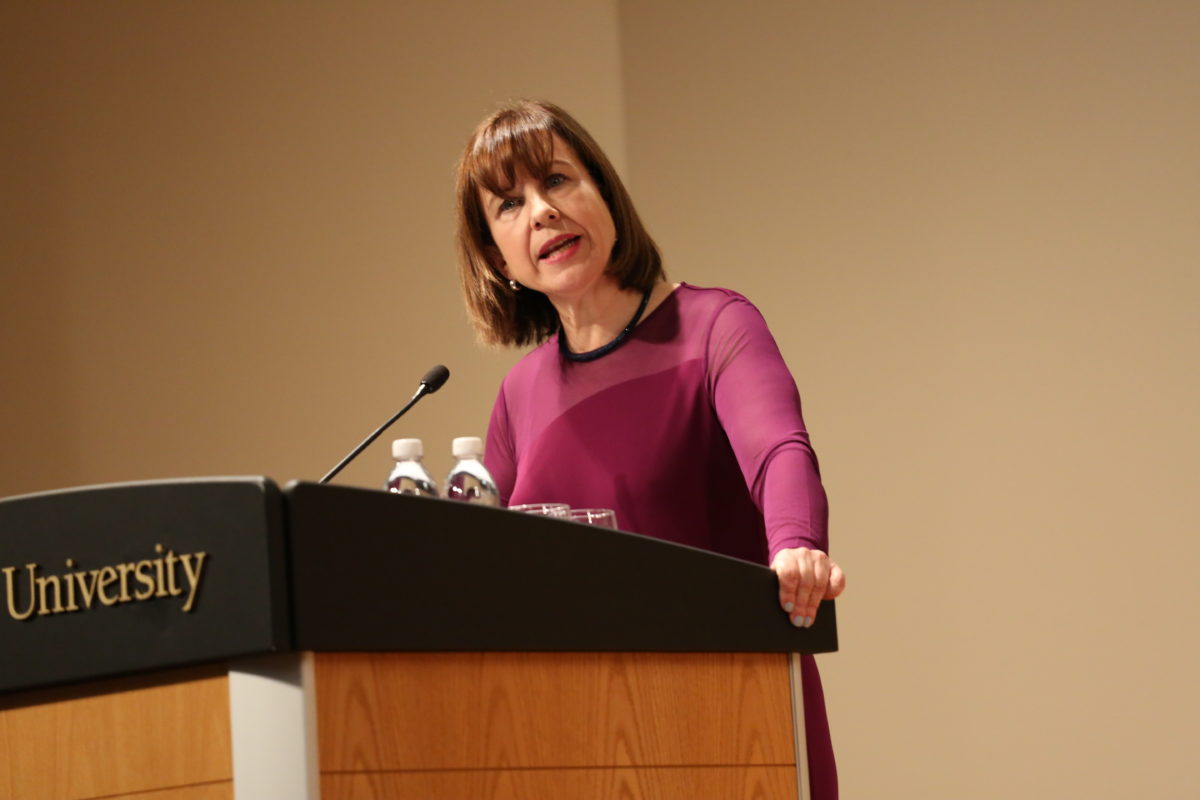
The way journalists write the refugee crisis has a profound impact on the message they send to society and politicians, Lyse Doucet told a packed Kinsella auditorium last Tuesday night.
The BBC chief international correspondent delivered the annual Dalton Camp Lecture in journalism. The lecture “In the Footsteps of Evangeline,” focused on the relationship between Evangeline-a poem about two lovers who separated because of persecution- and the current refugee crisis.
It’s a story about love, family and war.
“There are stories of husbands, wives and families, and now people fleeing for their lives,” she said.
Originally from Bathurst, Doucet graduated from Queen’s University with a degree in political science and then did her Master’s in International Relations at the University of Toronto.
She currently lives in London and has worked for the British news organization for more than 30 years. She recently reported the attacks in Paris.
She said in Syria there’s the equivalent of a Paris attack almost every day.
“Refugees are fleeing a well-grounded fear of resolution,” she said.
Doucet has travelled to Pakistan, Afghanistan, Iran and Egypt. She played a key role in reporting for the BBC the war between Israel and Hezbollah, and the conflicts in Iraq and Afghanistan. She has covered the refugee crisis during the last four years.
“My journalism has focused on displaced people,” she said.
Doucet said it struck her that Evangeline was adopted by Acadians, although it was written by Henry Longfellow, an American writer.
“It’s a very human story,” said Doucet. “It’s a story of our time.”
“I found this lecture opened my mind to what is happening in the Middle East,” said Paulina de la Mora, a marketing student at STU. “Listening to the opinion of an important woman in this field was amazing. I found she was very dynamic and friendly.”
In Canada, the new government announced it would identify 25,000 refugees who would come in 2016.
They had originally announced the refugees would come to the country by the end of this year, but the deadline was recently changed. Only 10,000 will come this year, with 15,00 to arrive next year.
Fredericton will be one of the 36 cities in the country to welcome them. The Multicultural Association of Fredericton is holding information sessions for people who want to help the refugees. Volunteering opportunities include becoming a friend, translators, and a mentor.
